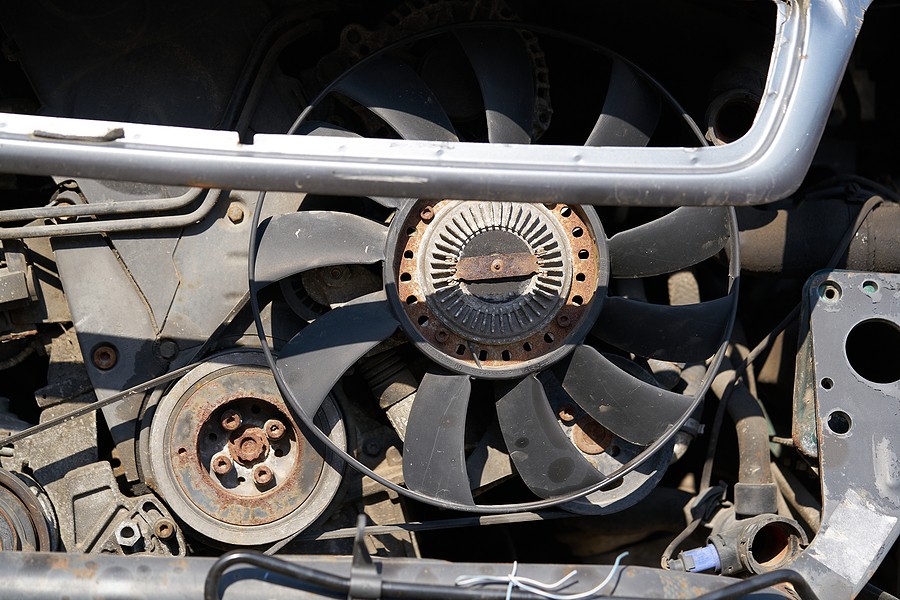If you're searching for “how to know if the radiator is cracked,” check for these symptoms:
- Visible cracks
- Engine overheating
- Coolant leaks
- Low coolant level
- Sweet smell
- White exhaust smoke
The radiator is a core component of your vehicle's cooling system. It is responsible for cooling down the antifreeze so it's ready to maintain the engine temperature when it exceeds a maximum threshold.
Over time use, the radiator goes out, and at some point, you might experience a cracked radiator. If this happens, your cooling system will be disturbed completely, and you might deal with severe damages that might cause the entire vehicle.
You must identify early signs of a cracked radiator to address the problem immediately. The earlier you detect the issue, the easier it is for your mechanic to fix the problem without replacing major components.
This article provides you with a guide to help you ask the question, ‘How do you know if the radiator is cracked?' It highlights the main symptoms, repairs, and potential repair costs.
How do we know if the radiator is cracked?
If you're suspecting that you're dealing with a cracked radiator, you can look for the following symptoms as automotive experts recommend:
1- Visible cracks
Visual inspection is the first and easiest way to determine whether you're ready or cracked. You cannot touch the cooling system without letting your car cool for at least 30 minutes to one hour. This is because the cooling system can be very hot, and there are high chances of getting burned from this hot coolant.
Once you identify the radiator location by referring to your vehicle owner's manual, you can check by performing quick visual inspections for any visible cracks. The cracks might be minor, but they can be very visible and big in some severe situations. In that case, Kamal, you must act immediately and have your mechanic inspect and repair your radiator as soon as possible.
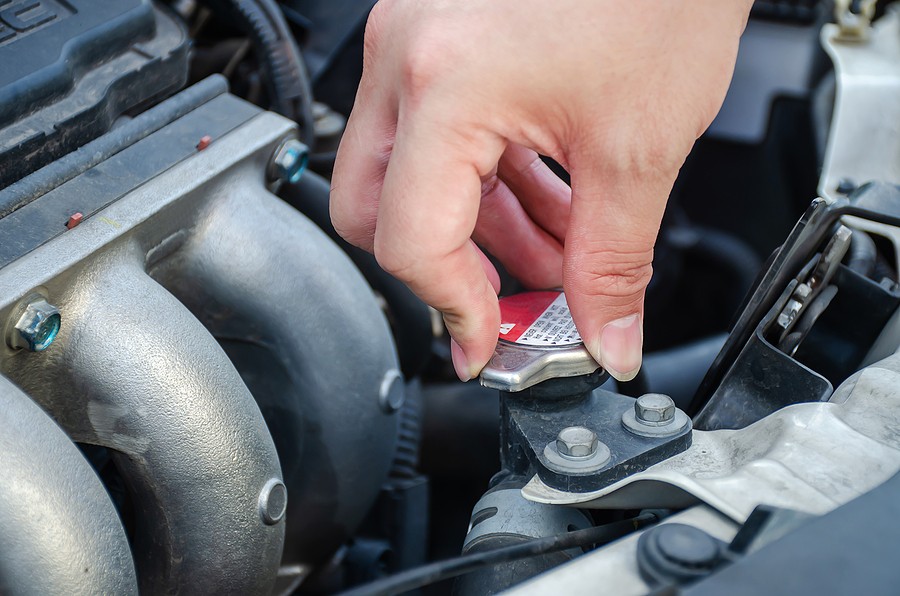
2- Engine overheating
If you cannot identify any potential visible cracks in your radiator, you can look for indirect symptoms. For example, a cracked radiator might lead to engine overheating if the problem is left for a long time.
Therefore, you can check the vehicle's dashboard and monitor the fluctuations of the temperature gauge. If you see that it is reading very high, it might indicate that the engine is approaching a maximum threshold that might be dangerous; sometimes, you might not be recommended to continue driving this car.
It is also important to note that engine overheating is a general problem. It can be linked to many issues, including a bad radiator, a damaged radiator hose, and some problems with the coolant itself. Therefore, your mechanic needs a more detailed inspection to identify the root culprit.
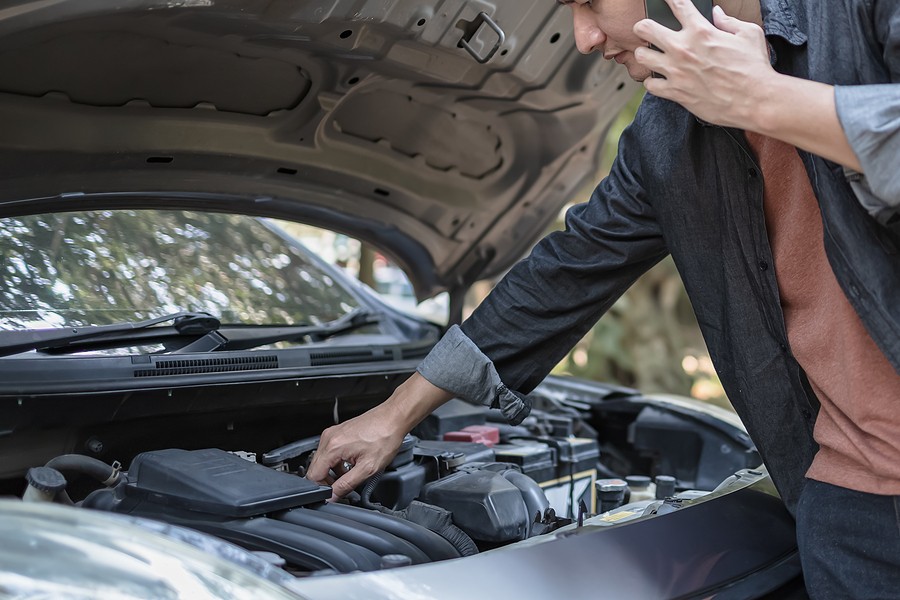
3- Coolant leaks
When 30 years is cracked, it can easily leak coolant from around the radiator. That's why automotive experts recommend that you inspect underneath the car and see for any symptoms of coolant leaks.
You need to ensure that these coolant leaks are happening from the area around the radiator up. Otherwise, the leak might be related to other weak seals around the cooling system.
If you confirmed a coolant leak, where it originated doesn't matter. You need to act immediately and have your mechanic fix it as soon as possible before things get out of hand. Coolant leaks can't easily lead to damaging your engine and might mean thousands of dollars on repair.
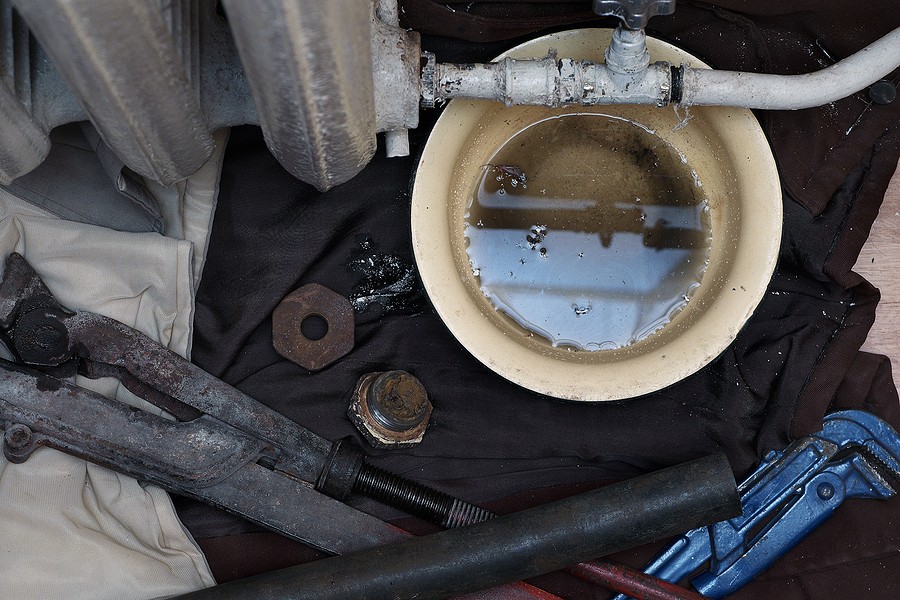
4- Low coolant level
Unsurprisingly, suppose you confirm that you're dealing with a coolant leak. In that case, you'll notice that the coolant level will drop significantly depending on the severity of the coolant leak. In other words, if you follow your vehicle owner's manual and locate the coolant reservoir, you can see the current coolant level and monitor it for some time.
If you realize that the coolant level is dropping beyond what it was, it might indicate that you have either an internal or external coolant leak. As we mentioned before, you must address the coolant leak as soon as possible because this might lead to severe engine damage.
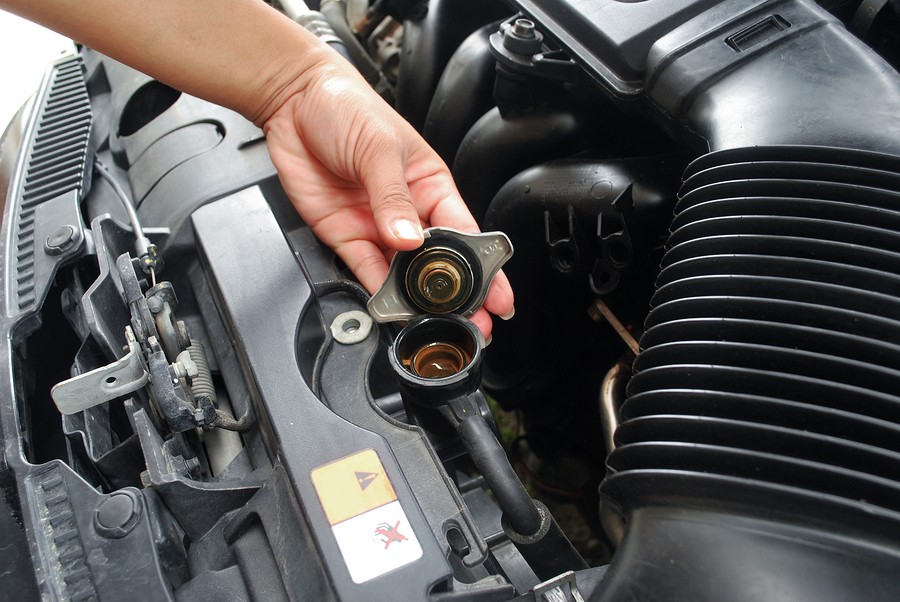
5- Sweet smell
Sometimes, the coolant leak might be internal. In other words, you might be unable to identify visible coolant puddles underneath the vehicle. In that case, you cannot monitor for other symptoms like sweet smells.
The coolant has a Maple syrup-like smell, and that's why automotive experts recommend never ignoring any weird smell, whether good or bad because it can indicate a problem happening internally.
Of course, the coolant smell will happen around the radiator if the radiator is cracked and if the radiator is the one causing the coolant leak. Otherwise, it might be just a problem with some other components.

6- White exhaust smoke
Finally, a cracked radiator can sometimes lead to white smoke from the tailpipe. The smoke should not be visible unless you're driving an old car or starting your car in the morning.
If you experience this white smoke continuously, it indicates that the coolant made its way to the engine, which can be very dangerous. The problem might be linked to a cracked radiator, but it could also be linked to something else, like a blown head gasket.
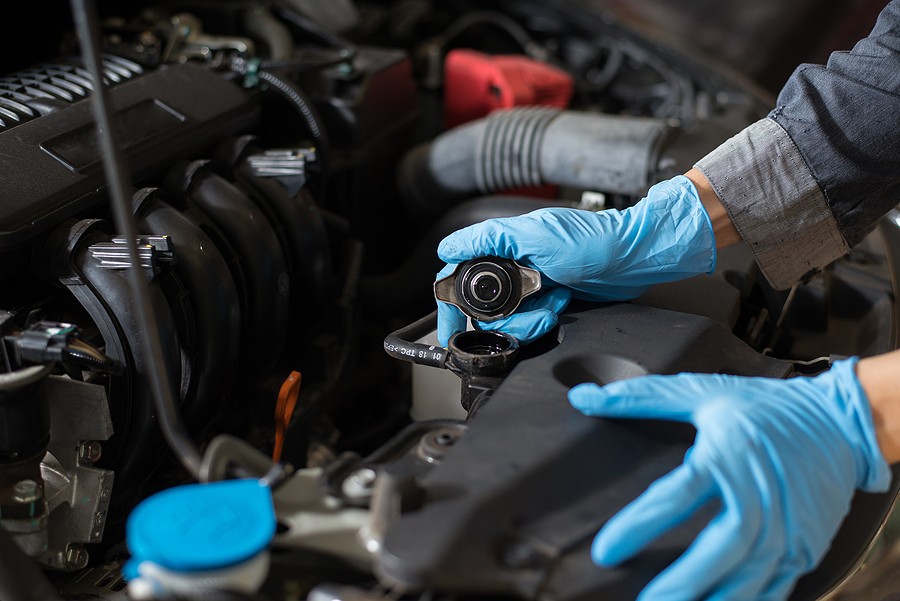
What to do with a cracked radiator?
Suppose you confirm that your radiator is cracked. In that case, you obviously don't want to continue driving your car, especially if this crack impacts the vehicle and shows some additional symptoms like engine overheating.
Your mechanic is the one who can make the right and final call about what needs to be done with this cracked radiator. If the crack is minor, there might be a chance that the mechanic can seal the crack and have your radiator serve you for additional time, but in many instances, you might need to replace the entire radiator.
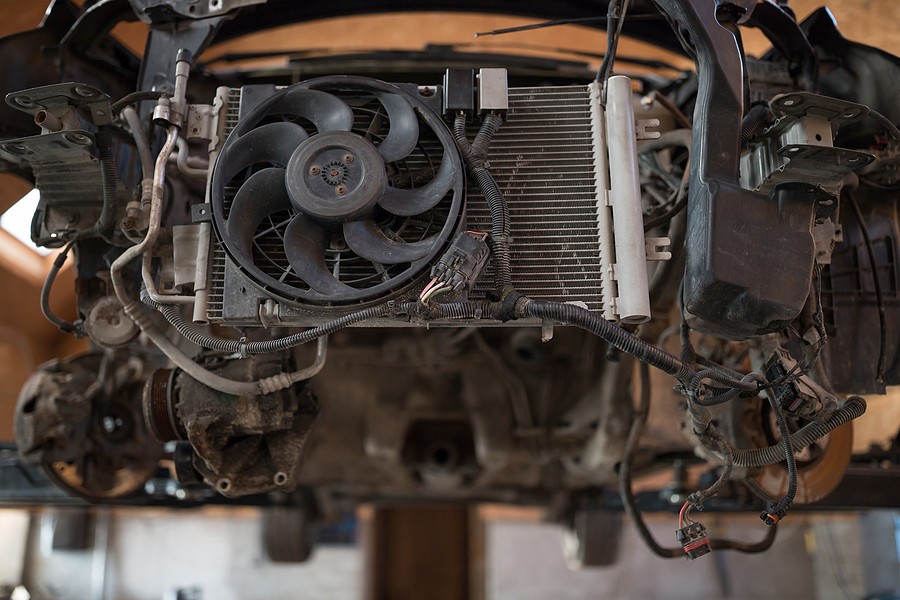
How much does it cost to replace a cracked radiator?
If your mechanic indicated that you have to replace your radiator, unfortunately, there is no other option for you in this case. Therefore, you need to understand the expected repair costs for replacing this radiator, including the parts and labor costs.
In general, cracked radiator replacement costs are broken down into two main categories:
1- Parts costs
For the parts replacement, you can expect between $50 and $300 to replace the radiator. Depending on your vehicle type and condition, you might need an additional $10 to $20 for the entire phase. These are just general ranges, and things can be much higher if you're driving a luxury car.
2- Labor costs
Labor cost is a function of where you get your vehicle done and repaired. In other words, if you go to a small independent shop, repair costs can be very cheap, but if you go to a professional mechanic at a dealership, you can expect much higher repair costs.
In most scenarios, you should expect between $100 and $300 for labor costs to replace your radiator, and that can be much more significant if your vehicle is more complex and if the dealership requires higher repair costs.
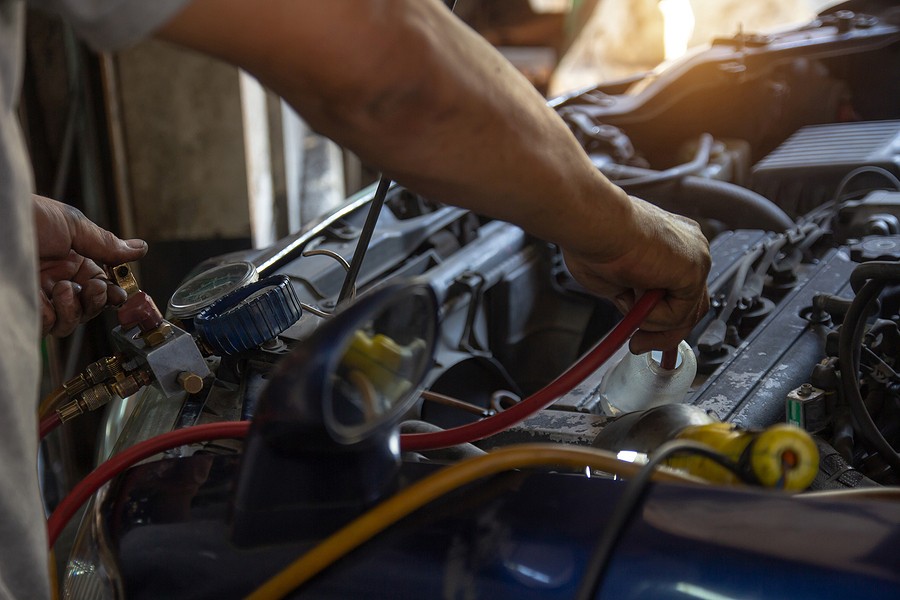
Is it worth replacing my cracked radiator?
It all depends. Depending on your vehicle's overall condition, you need to make an informed decision by analyzing the expected repair costs and comparing them to your vehicle's overall value.
If your repair costs are expected to be 75% or more of your vehicle's current value, then it's not worth fixing your car, and you should sell it instead.
For example, if you're driving a 2012 Nissan Altima, replacing the radiator, and performing some additional repairs, it might cost you about $ 5,000, and your vehicle might be worth $6000. It's not worth fixing this car; you should sell it instead.

How do we know if the radiator is cracked? Final Thoughts
Dealing with a cracked radiator can be a nightmare, especially if you're concerned about your vehicle's health. A crack in the theater can result in severe damage, including engine overheating that might lead to self-destruction.
This article helped you answer, “How do you know if the radiator is cracked?” It highlights the main symptoms to look for, potential repair options, and repair costs.
It could be perfect timing for selling this car if you confirm that your repair costs are getting close to your vehicle's value. Are you interested in someone to pick up your car immediately? Call Cash Cars Buyer at 773-791-4363.
If you're interested in similar posts, we highly encourage you to visit our blog by clicking here.

